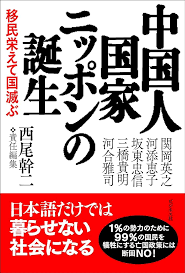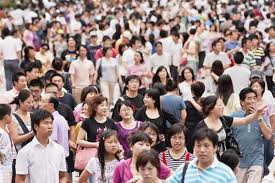Coexistence with people from other countries and cultures. In the current era of 2025, such words have become familiar “everyday” rather than abstract “themes. On the front lines, unprecedented changes and friction are occurring. What is the surprising reality that can only be seen through on-site reporting?
Liu Xiuying (pseudonym, 35 years old), a former bank employee from Guangdong Province, is a Chinese immigrant who moved to Japan about two years ago with his wife and six-year-old son.
He is supposed to be “a manager of a Chinese restaurant” in Tokyo, but his actual job is “a reseller. Whenever limited-edition merchandise from the Tokyo Disney Resort is released, he purchases large quantities and resells them in China, earning “enough money to live on for my family of three, although we cannot afford luxuries.
Mr. Liu explains how he came to Japan.
I was pessimistic about the future of the Chinese economy and decided to emigrate. I also did not want to raise my son in a country where there is no freedom of speech under the one-party dictatorship of the Xi Jinping administration.
At first, he wanted to move to a Western country, and he planned to use the proceeds from the sale of the condominium he owned to fund his move. However, in China, there are restrictions on taking cash out of the country, with an annual limit of 20,000 yuan (approximately ¥400,000) and 100,000 yuan (approximately ¥2 million) for withdrawing deposits in China from abroad.
Liu thought it would be impossible to move to Europe or the U.S., so he became interested in moving to Japan, where it would be more affordable. He was interested in immigrating to Japan because it was more affordable,” said Liu, ‘but there are ’immigration brokers’ in China that are almost unknown in Japan. If you do a little search on the Chinese social networking site Xiaohongsho, you can find any number of brokers.
They coordinate immigration according to the funds of the applicants. I was able to obtain a “business management visa” and come to Japan by borrowing a position as a Chinese restaurant owner through a broker.
As of July 2012, there are approximately 3.4 million foreign residents in Japan. As of July 2012, there are approximately 3.4 million foreign residents in Japan, of which the largest group, accounting for about 25%, is made up of Chinese nationals.
When one hears of Chinese people coming to Japan, one tends to imagine wealthy people with enormous assets, but in recent years, the number of middle class to poor people like Mr. Liu who have immigrated to Japan has increased rapidly. It is “immigration brokers” who are bringing them to Japan in large numbers.
This time, this magazine interviewed a Chinese man in his 50s (“Mr. X”), who runs a brokerage business in Japan and has helped more than 60 immigrants in the past three years. We asked him about the hidden “system.
He said, “The most common way to immigrate from China to Japan is to obtain a ‘business management visa’ and then renew it. The most common method is not to actually start a corporation from scratch, but rather to “borrow the title of business manager. The company pays money to a business owner who is already operating a Chinese restaurant or a Chinese specialty store in Japan, borrows only the name of the business owner, and makes the registered representative the immigrant.
For the “business administration visa,” the contingency fee is 1,000,000 yen for the first year’s application, and 800,000 yen for subsequent renewals. For subsequent renewals, the fee is 800,000 yen. Some firms charge double this amount. In my case, I have annual sales of 40 million yen just from the “business management visa” fee alone.
Most middle-class people with limited funds for immigration live in Japan by renewing this “business administration visa,” but many more affluent people wish to obtain “permanent residence” status.
Weekly Gendai












